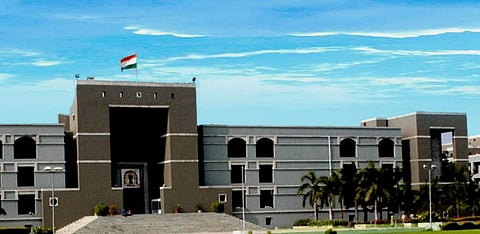

In XYZ versus State of Gujarat, a Gujarat High Court judge has allowed medical termination of pregnancy of a minor victim, reiterating the grounds of woman's bodily and decisional autonomy.
—
ON September 6, Justice Samir J. Dave of the Gujarat High Court ordered the medical termination of the 26-week-old pregnancy of an 11 year old minor under the Medical Termination of Pregnancy Act, 1971 (MTPA).
Justice Dave relied on the Supreme Court's judgment in X versus Principal Secretary, Health and Family Welfare Department, Govt. of NCT of Delhi and Another (2022).
In X versus Principal Secretary, a three-judge Bench headed by the Chief Justice of India Dr D.Y. Chandrachud and comprising Justices Surya Kant and A.S. Bopanna had observed that the 'right to reproductive autonomy' is closely linked with the 'right to bodily autonomy' protected in Article 21 of the Indian Constitution.
The Bench had stated: "The decision to carry a pregnancy to its full term or terminate it is firmly rooted in the right to bodily autonomy and decisional autonomy of the pregnant woman."
The victim-petitioner was subjected to "the heinous offence of" rape by her father.
Pursuant to an Order passed by the Gujarat High Court on September 4, a medical report of the victim-petitioner was submitted before the court.
In the medical report, it was found that the victim-petitioner has shown no signs of any pregnancy-associated complications.
However, the victim-petitioner was found under stress due to the pregnancy. Her mother expressed a desire for termination of the pregnancy.
Section 3 of the MTPA allows medical termination of pregnancy by a registered medical practitioner on two grounds in cases where the pregnancy has exceeded 20 weeks but is of less than 24 weeks.
First, if the continuance of the pregnancy involves a risk to the life of the pregnant woman or of grave injury to her physical or mental health.
Second, if there is a substantial risk that if the child were born, it would suffer from a serious physical or mental abnormality.
Explanation II to Section 3 adds that where a pregnancy has been caused by rape, the anguish caused by the pregnancy shall be presumed to constitute a grave injury to the mental health of the pregnant woman.
Further, in cases where a minor is pregnant, the consent of the guardian to terminate the pregnancy is necessary as per Section 3(4)(a).
The high court referred to "Durga Saptashati" also known as "Devi Mahatmya" which is one of the earliest extant complete manuscripts of the Hindu tradition.
This manuscript describes reverence and worship of the feminine aspect of god.
The court referred to one of the verses of the text and remarked that there is no higher insult to a woman than trying to touch her dignity.
Justice Dave stated: "In this case, it is very shocking and painful that the victim herein, who is a 11 year 9 months old girl child, has been subjected to a heinous crime by none else but her own father."
"Without entering into the criminality of the act committed by the accused in this case, this court deems it appropriate to order medical termination of pregnancy of the victim herein at the earliest possible time considering the medical report of the victim and the provisions of the MTPA," Justice Dave ordered.
Recognising the strenuous mental and physical agony of the petitioner-victim, the court has ordered a compensation of ₹2,50,000 to be paid by the Gujarat government to the victim.
The high court added that the Order of compensation would not preclude the trial court from awarding further compensation to the victim under Section 357 (order to pay compensation) of the Code of Criminal Procedure, 1973.